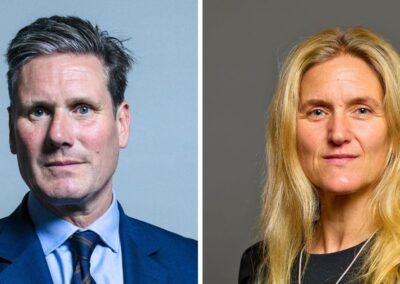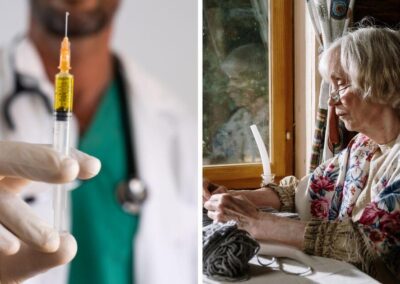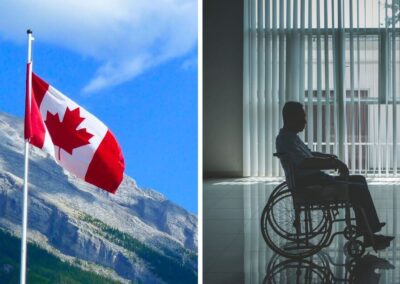A new poll has found that 85% of those who took a position on the question agree that hospices, care homes, doctors and other health professionals should have a legal right to opt out of participating in assisted suicide if it is made legal.
The poll, conducted by Whitestone Insight based on responses of 2,090 UK adults in August of this year, also found that, of those who took a position on the question, when asked if patients “should have a legal right to be treated, if they choose, by doctors and other health professionals who have opted out of participating” in assisted suicide/dying were it made legal, 69% agreed.
Of those who took a position on the question, 58% agreed that “parliament should not consider legislating for assisted dying/assisted suicide until specialist palliative care is available to every patient in the UK across every day of the week”.
The poll also found assisted suicide came 11th out of 11 among respondents’ “top priorities for the NHS and local authorities when it comes to health and social care”.
Variety of campaigners “continue to express alarm at the current bill”
Chief executive of Care Not Killing, Gordon Macdonald, said “This major new poll shows the growing unease of ordinary people around the current attempts to legalise assisted dying. The supporters of changing the law claim the public backs assisted suicide, it can be done safely and cheaply – the opposite is true”.
“The more the public hears about it, the more concerned they are about ripping up the NHS charter, turning doctors into executioners and see how the costs are quickly approaching half a billion pounds over a decade, while our amazing hospices and palliative sector remains starved of cash and facing years of cuts and reductions to services”.
This polling suggests that the public has significant concerns about the participation of the medical profession and medical premises in assisted suicide. MPs raised similar concerns during the Bill’s Committee Stage in March, when MPs voted against protections for hospices and care homes that may not wish to have assisted suicide performed on their premises, as well as voting against strengthening protections for individual medical professionals who do not wish to be involved in assisting in the suicide of their patients.
Rachael Maskell MP introduced an amendment to prevent “there being any obligation on a care home or hospice… to permit the provision of assistance under the Act on their premises”. The amendment was defeated 17 votes to 4.
House of Lords on course to reject Leadbeater assisted suicide Bill
The poll came in the build-up to the debate at Second Reading of the assisted suicide Bill in the House of Lords, when Peers declared that the House of Lords is now on course to reject the Bill at Third Reading, after a strong majority of Peers spoke against the Bill.
As Peers lined up to oppose the assisted suicide Bill, former Prime Minister, Baroness May, gave a very strongly worded speech, saying “Suicide is wrong, but this Bill effectively says suicide is ok… It should not pass”.
Baroness Monckton, whose daughter Domenica is the goddaughter of Princess Diana and has Down’s syndrome, spoke of strong opposition from a coalition of over 350 disability organisations.
Reflecting on day one of Second Reading, Lord Moylan said “It is clearly going to be very difficult for the promoters of this legislation to see it through all its stages before the end of the Parliamentary session”.
Spokesperson for Right To Life UK, Catherine Robinson, said “Both the public and Peers in the House of Lords are sharing their concerns about the very real dangers of this Bill, which represents an acute threat to the vulnerable, who need our protection and support rather than the offer of assisted suicide”.
“There is no doubt that doctors, healthcare workers and premises should have a legal right to opt out of providing assisted suicide. Instead, the focus should be on offering protection, support and the best quality care to vulnerable people in our society”.












